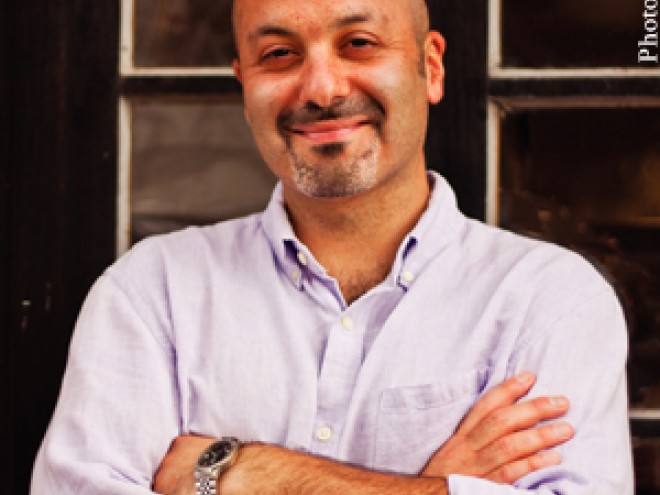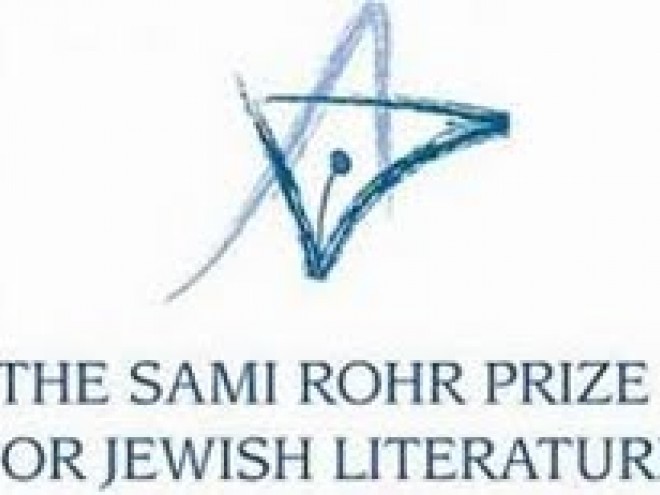Posted by Naomi Firestone-Teeter
 I’m sure it comes as no surprise that Gal Beckerman, winner of the 2010 Jewish Book of the Year Award, is a finalist for this year’s Sami Rohr Prize for his book When They Come for Us, We’ll Be Gone: The Epic Struggle to Save Soviet Jewry. Gal is no stranger to the Jewish Book Council: he’s blogged for us, toured on our Network, and won a National Jewish Book Award. The Rohr Judges were also impressed with his work, siting it as “[a] comprehensive, balanced and enthralling book on the history of the Soviet Jewry movement.” In our final installment of “Meet Sami Rohr Finalist…”, Gal shares his guilty reading pleasure and some of his inspirations:
I’m sure it comes as no surprise that Gal Beckerman, winner of the 2010 Jewish Book of the Year Award, is a finalist for this year’s Sami Rohr Prize for his book When They Come for Us, We’ll Be Gone: The Epic Struggle to Save Soviet Jewry. Gal is no stranger to the Jewish Book Council: he’s blogged for us, toured on our Network, and won a National Jewish Book Award. The Rohr Judges were also impressed with his work, siting it as “[a] comprehensive, balanced and enthralling book on the history of the Soviet Jewry movement.” In our final installment of “Meet Sami Rohr Finalist…”, Gal shares his guilty reading pleasure and some of his inspirations:
What are some of the most challenging things about writing non-fiction?
I’d have to say it’s the challenge of “casting” the book correctly. So much of turning history into narrative has to do with finding the right people through whom you can tell the story. This is not always straightforward, especially when you are trying to present an engaging version of a history that is otherwise rambling, takes place over decades with different periods of boom and bust, and involves hundreds of central players — as was the case with the Soviet Jewry movement. Unless you want the book to turn into a jumble of facts, you need to find individuals to act as needles that will help the reader thread their way through.
What or who has been your inspiration for writing non-fiction?
There are a few writers who have worked on large canvases but never lost sight of telling a human story. I’m thinking of authors like Taylor Branch in his Parting the Waters trilogy about the civil rights movement; Adam Hochschild’s books on social movements and anything by David Halberstam; or Tom Segev’s excellent histories of Israel.
Who is your intended audience?
Everyone, or anyone who is interested in the past and can be drawn in to a good story.
Are you working on anything new right now?
There are a few ideas jostling around in my head, competing to become the object of my obsession. Generally speaking, I’m interested in continuing to explore those places where the Jewish story intersects or affects the American story. And, as always, something that has a strong narrative.
What are you reading now?
Just finished Stephen Greenblatt’s The Swerve: How the World Became Modern and indulging in one of my guilty pleasures, noirs, reading Martin Smith Cruz’s Arkady Renko series.
When did you decide to be a writer? Where were you?
Probably the womb. I’ve wanted to be a writer for as long as I can remember. The question has been what kind of writer, and that has been settled only more recently over the past ten years when I discovered what a good fit long form narrative, and history in particular, was for me.
 What is the mountaintop for you — how do you define success?
What is the mountaintop for you — how do you define success?
For me, it’s simply being able to keep writing for a living — and to continue producing books. Given the economic insecurity that comes along with doing anything creative, that would feel like success.
How do you write — what is your private modus operandi? What talismans, rituals, props do you use to assist you?
I don’t have any special rituals, though I do need quiet and time.
What do you want readers to get out of your book?
A more complete sense of the Soviet Jewry movement and the role it played in history. And ideally, pleasure.
Gal Beckerman is nominated for his first book, When They Come for Us, We’ll Be Gone: The Epic Struggle to Save Soviet Jewry, which was awarded the 2010 National Jewish Book Award for Jewish Book of the Year. He is an opinion editor at The Forward and has written for The New York Times, Washington Post, and Wall Street Journal, among other publications. He was recently a Fellow at the Alexander von Humboldt Foundation in Berlin and lives in Brooklyn.
Originally from Lancaster, Pennsylvania, Naomi is the CEO of Jewish Book Council. She graduated from Emory University with degrees in English and Art History and, in addition, studied at University College London. Prior to her role as executive director and now CEO, Naomi served as the founding editor of the JBC website and blog and managing editor of Jewish Book World. In addition, she has overseen JBC’s digital initiatives, and also developed the JBC’s Visiting Scribe series and Unpacking the Book: Jewish Writers in Conversation.


